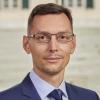
COP26 will bring together parties from across the globe, offering a crucial opportunity to achieve pivotal, transformational change in global climate policy. IIASA is organizing several side events and its researchers will attend and present the latest research on how to reach ambitious targets on climate.
 © Petr Švec | Dreamstime.com
© Petr Švec | Dreamstime.com
COP26 comes against a background of widespread, intensifying, and increasingly existential climate change impacts and the COVID-19 pandemic, with the urgent need to build forward better for present and future generations to ensure a safe future. This year's summit is focused on accelerating action towards the goals of the Paris Agreement and the UN Framework Convention on Climate Change.
The United Kingdom holds the presidency of this year’s conference and it aims to achieve the following priority goals during the event: secure global net zero by mid-century and keep 1.5 degrees within reach; adapt to protect communities and natural habitats; mobilize finance and work together to deliver. IIASA researchers will actively contribute with scientific insights to a number of activities and discussions during the conference.
IIASA participation at COP26 (playlist)
28-29 October, University of Glasgow
Pre-COP26 event - presentation of the book "Water Security Under Climate Change". Leena Srivastava, IIASA Deputy Director General for Science, will present an overview.
What does transforming the energy system really mean? Adaption, resilience & transition challenges
1 November (9:30-10:30 GMT), EU Pavilion
Side event: This session will discuss challenges on a path towards a climate resilient low carbon energy system. The panel of experts, including scientists involved in the IPCC AR6 Working Groups, will provide latest scientific evidence and insights on how this transition can be achieved.
Speakers include:
- Nebojsa Nakicenovic, Emeritus Research Scholar, Integrated Assessment and Climate Change Research Group, Energy, Climate, and Environment Program, IIASA.
- Elina Brutschin, Research Scholar, Transformative Institutional and Social Solutions Research Group, Energy, Climate, and Environment Program, IIASA.
The Journey from Scientific Insights to Societal Action
1 November (11:30-12:30 GMT), EU Pavilion
Side event, co-organized by IIASA in the framework of the ENGAGE project: To tackle climate change effectively, it is important that all levels of society have an understanding of climate change, and its risks and impacts. This session takes a journey from new scientific research findings about net-zero futures and climate change impacts, discussing recent developments in communication, education and public engagement, to arrive at policy and action.
Speakers include:
- Bas van Ruijven, Sustainable Service Systems Research Group Leader, Energy, Climate, and Environment Program, IIASA.
Beyond cutting methane emissions: why we need to enhance atmospheric methane oxidation
1 November (13:00-14:00 GMT), Methane Pavilion
Side event: This session will discuss methane removal as a complementary strategy to achieve aggressive GHG reduction in order to bring atmospheric methane concentrations down to safe levels. A Methane Declaration circulating at COP26 proposes a research, development, deployment, and governance structure for methane removal, which together with considerable methane emissions reductions, has the potential to cut atmospheric methane concentrations in half in the next decade.
Speakers include:
- Lena Höglund-Isaksson, Senior Research Scholar, Pollution Management Research Group, Energy, Climate and Environment Program, IIASA.
Forest and Science Day. Forests at International and National Climate agendas
4 November (12:00-15:00 GMT), Pavilion of Russia
Russian Federal Forest Agency invited IIASA researchers to provide insights on IIASA-Russia joint research on forest and forestry - from science to policy.
Speakers include:
- Florian Kraxner, Agriculture, Forestry, and Ecosystem Services Research Group Leader, Biodiversity and Natural Resources Program, IIASA.
- Dmitry Shchepashchenko, Senior Research Scholar, Agriculture, Forestry, and Ecosystem Services Research Group, Biodiversity and Natural Resources Program, IIASA.
Sustainable Water and Energy Solutions supporting Climate Change Objectives during the Decade of Action and Beyond
4 November (14:00-15:30 GMT)
Side event: This session will discuss efforts of the members of the Global Sustainable Water and Energy Solutions Network supporting climate change efforts during the Decade of Action. The panelists will have the opportunity to present and discuss their current and future plans for activities, projects and programmes supporting climate change mitigation and adaptation.
Speakers include:
- Leena Srivastava, IIASA Deputy Director General for Science (Moderator).
Transitioning towards low-carbon and climate resilient pathways by 2050
5 November (18:30-19:45 GMT), Multimedia Studio 1
Side event, co-organized by IIASA in the framework of the ENGAGE project: Showcasing different pathways for achieving a just, low-carbon, and climate-resilient transition by 2050. This will include key considerations for addressing mitigation and adaptation challenges, such as technology innovations, energy use, and emissions to ratchet up climate ambitions.
Speakers include:
- Bas van Ruijven, Sustainable Service Systems Research Group Leader, Energy, Climate, and Environment Program, IIASA.
- Elina Brutschin, Research Scholar, Transformative Institutional and Social Solutions Research Group, Energy, Climate, and Environment Program, IIASA.
Task Force on Global Change of World Water Council
6 November
Side event organized by the World Water Council
- Chaired by Taher Kahil, Water Security Research Group Leader, Biodiversity and Natural Resources Program, IIASA.
ADAPTATION & LOSS AND DAMAGE
8 November (full day), COP26 venue
COP26 day on ADAPTATION & LOSS AND DAMAGE, organized by the Red Cross Red Crescent Climate Centre with IIASA input, will deliver the practical solutions needed to adapt to climate impacts and address loss and damage. Participants of the conference will discuss how we can build and finance a more climate-resilient future.
IIASA is facilitating the event on "Rethinking Loss and Damage" - a highly participatory dialogue and debate on practical approaches for delivering L&D support to front line communities (14:15-15:15 GMT, Room 4).
Contributors include:
- Reinhard Mechler, Systemic Risk and Resilience Research Group Leader, Advancing Systems Analysis Program, IIASA.
Innovation – A Catalyst for a Net Zero Emissions Energy Transition: Insights and Experiences of the Vienna Energy Club (VEC)
9 November (11:15-12:15 GMT), Hall 4, Scottish Event Campus
Side event, co-organized by IIASA and its partners from the Vienna Energy Club. Meeting the UN 2030 Agenda and Paris Agreement ambitions poses the challenge of reaching net zero emissions by mid-century. This calls for flexible, enabling policy and regulatory frameworks, the emergence of new business models, and a complete redesign of our energy systems within the next thirty years to enable a just and inclusive energy transition. The panel will address each of the three SDG7 targets and the role of innovation in achieving them as well as enabling equitable access to energy services, a just transition for all, and a net zero emissions energy transition.
Speakers include:
- Shonali Pachauri, Transformative Institutional and Social Solutions Research Group Leader, Energy, Climate, and Environment Program, IIASA.
Science and Technology’s Role in Getting Us to Net-Zero Emissions
9 November (15:00-16:00 GMT), U.S. Center
Speakers include:
- Nebojsa Nakicenovic, Emeritus Research Scholar, Integrated Assessment and Climate Change Research Group, Energy, Climate, and Environment Program, IIASA.
Observing Our Planet
9 November (16:30-17:30 GMT), U.S. Center
Speakers include:
- Nebojsa Nakicenovic, Emeritus Research Scholar, Integrated Assessment and Climate Change Research Group, Energy, Climate, and Environment Program, IIASA.
Energy Demand changes Induced by Technological and Social innovations
11 November (13:00-14:30 GMT), Japan Pavilion
Side event, co-organized by IIASA and its research partner, Research Institute of Innovative Technology for the Earth (RITE), Japan in the framework of the Energy Demand changes Induced by Technological and Social innovations (EDITS) project. This session presents the frontiers in energy and material demand knowledge, the role of digitalization, innovation and equity efforts in a deep social, economic and technological transformation of energy demand. The event will build on the recent work of the EDITS network, and explore how a demand-side transition can contribute to rapid and successful climate change mitigation towards a 1.5°C pathway.
Speakers include:
- Keywan Riahi, Energy, Climate, and Environment Program Director, IIASA (Moderator).
- Arnulf Grubler, Emeritus Research Scholar, Sustainable Service Systems Research Group, Energy, Climate, and Environment Program, IIASA.
- Shonali Pachauri, Transformative Institutional and Social Solutions Research Group Leader, Energy, Climate, and Environment Program, IIASA.
- Charlie Wilson, Research Scholar, Sustainable Service Systems Research Group, Energy, Climate, and Environment Program, IIASA.
How vulnerable countries are responding to loss and damage and what support they need
11 November (16:45-18:00 GMT), Lomond Auditorium
Side event: This session will highlight the mechanisms required to strengthen global solidarity. Panelists will discuss challenges and opportunities for developing countries, local governments and communities as loss and damage impacts accelerate. Case studies on national preparedness for loss and damage will be presented.
Speakers include:
- Reinhard Mechler, Systemic Risk and Resilience Research Group Leader, Advancing Systems Analysis Program, IIASA.
Policy briefs relating to COP26
A number of policy briefs developed by IIASA are published for COP26:
Finding a feasible path
A new framework assesses the feasibility of climate scenarios, pointing out stumbling blocks and how to surmount them.
Avoiding overshoot: why and how
Overshooting global temperature goals is risky. New research from the IIASA-coordinated ENGAGE project shows the long-term economic benefits of scenarios that avoid overshoot, and points out the investments needed to make it happen.
A policy framework for Loss and Damage finance
A comprehensive risk policy framework supports the identification of international funding options for reducing climate-related risk and addressing residual impacts beyond adaptation in vulnerable countries.
United scenarios
A harmonized scenario framework can help to align national climate policies with global goals.
